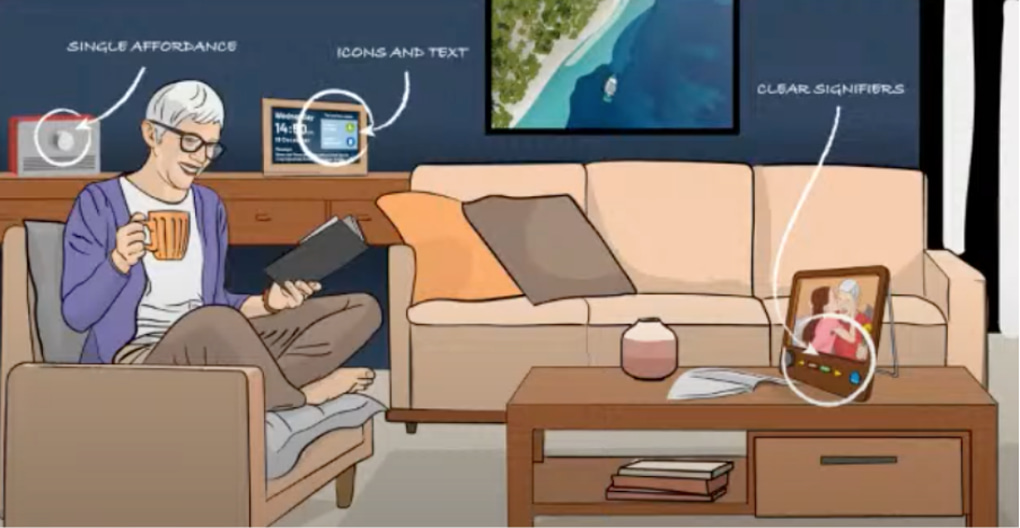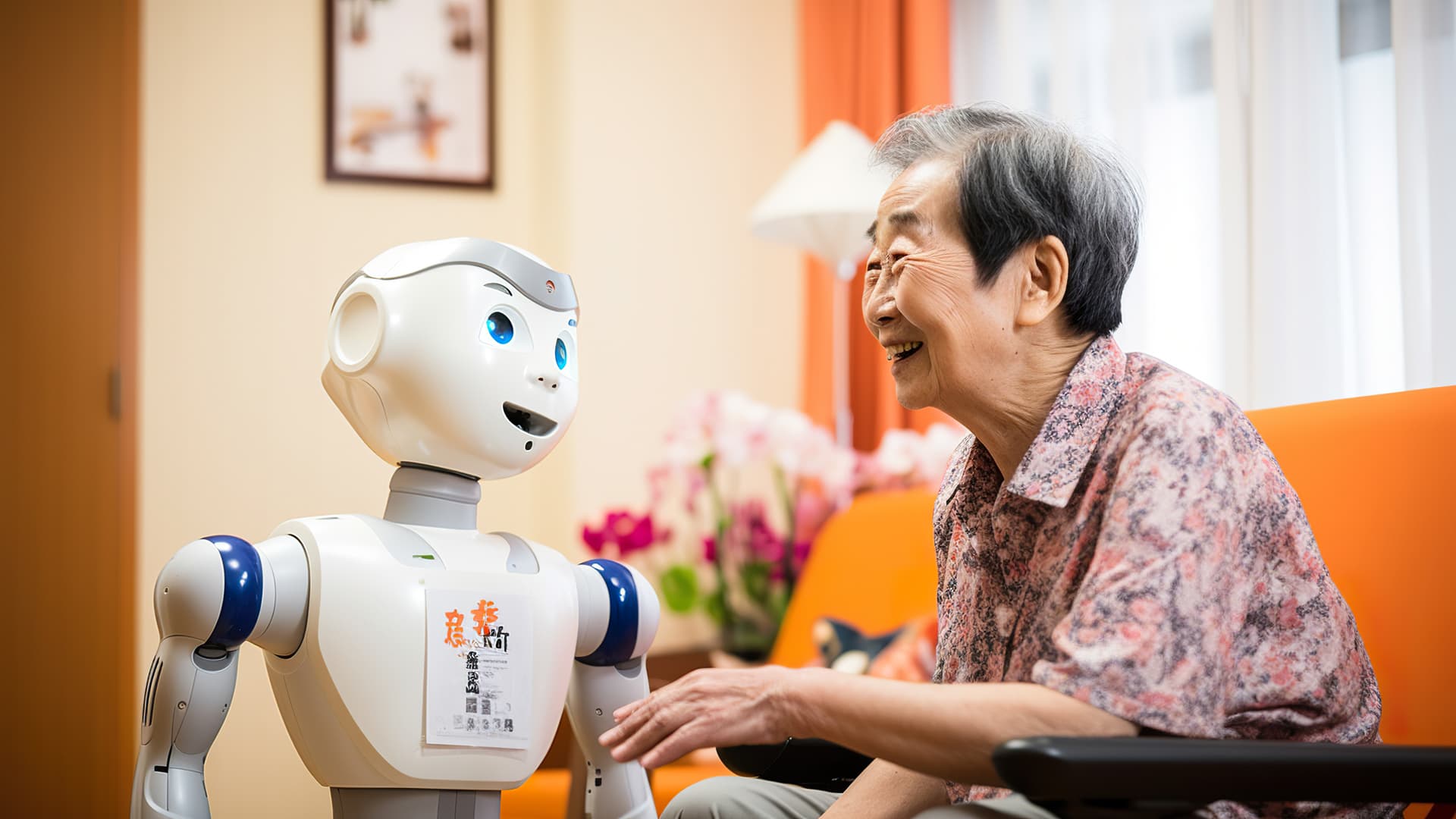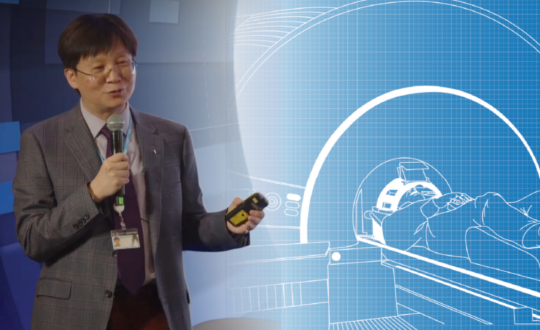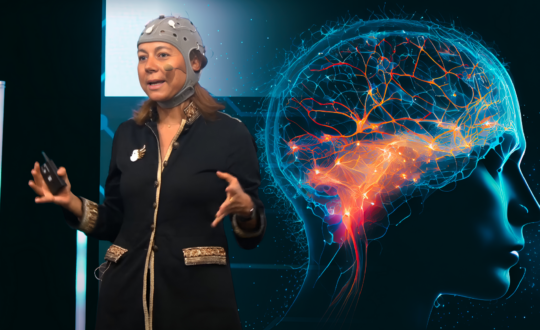In the challenging landscape of dementia care, anticipated to skyrocket to 55 million people worldwide, the demand for innovative and lifechanging solutions becomes increasingly urgent.
Addressing this need, socially-assistive robots become promising allies within long-term care facilities. These robots go beyond mere assistance, offering cognitive stimulation and emotional support for those in need by changing both the mental well-being of individuals grappling with dementia and the caregivers alike.
Latest research findings, solutions, and challenges in the field of robotics for dementia care were covered in the recent webinar called “Cognitively assistive robots for dementia care” by experts from the leading companies and educational institutions: Tombot, Inc., the University of Minnesota Duluth, University of Waterloo, University of Illinois Urbana-Champaign, University of Queensland, and Dalhousie University.
The Story of Jennie – a Socially Assistive Robot
Often, the groundbreaking solutions are closely intervened with personal connection to the cause which adds a poignant dimension for developing and creating innovative support for other people in need.
At Tombot, Inc., using the unique blend of personal story, creativity, and technological advancements, Tom Stevens and his team are dedicated to developing “Jennie,” a socially assistive robotic dog with a specific focus on providing companionship and stimulating oxytocin release in individuals facing dementia. The company embarked on a mission to create a robotic companion that could significantly impact the lives of elderly individuals. The underlying philosophy of the work done by the company is to leverage technology and enhance the well-being of those facing cognitive challenges.
“We are dedicated to developing Jenny, a socially assistive robot designed to provide companionship and stimulate oxytocin release in individuals with dementia,” noted Tom Stevens, a CEO and co-founder of Tombot, Inc.

The Role of Participatory Design for Meaningful Solutions
The process of developing meaningful solutions for dementia care also involves careful and strategic planning. Thus, participatory design, a collaborative approach involving active participation in the development process by those for whom the solution is intended, plays a pivotal role in facilitating the implementation of usable technologies that avoid isolation.
At the University of Queensland, Dr. Janet Wiles and her team are at the forefront of dementia care research, advocating for participatory design in technology development. Her approach focuses on understanding the genuine needs and strengths of individuals with dementia, moving away from a deficit-centered perspective.
The project “Florence,” designed by the team, stands out as a personalized knowledge ecosystem integrating communication devices like music, radio, diary, and photo frames. This initiative aims to support independent living and enhance the lives of individuals with dementia.
“Understanding individuals’ strengths rather than just symptoms is crucial in designing technologies for individuals with dementia. It is important to ensure that these technologies are usable, meaningful, and do not isolate people,” said Dr. Janet Wiles, a Professor of Complex and Intelligent Systems, University of Queensland.

Challenges for Socially Assistive Robots Development
At the University of Waterloo, Dr. Moojan Ghafurian and her team delve into the intricate realm of socially assistive robots, shedding light on the challenges in their development and the critical role of emotional intelligence and personalization. Their research focuses on supporting activities of daily living and providing cognitive support through instructional reminders.
The team’s mission is to craft contextually appropriate robot emotions and personalities. Achieving a balance between emotional connection and practical functionality is necessary for the successful integration of these robots in daily life. This approach ensures that socially assistive robots not only assist with tasks but also cater to the emotional needs of users.
“Social robots in healthcare can be personalized and adaptable, can be perceived as non-judgmental, are good at repetitive tasks, are shown to be enjoyable to interact with, and are physically present,” noted Dr. Moojan Ghafurian, Assistant Professor at the University of Waterloo.
It is also important to take into consideration the research findings when working on solutions for elderly people. Dr. Aria Khan and her team from the University of Minnesota, shared unveiling insights demonstrating that robots significantly enhance cognition and mood in individuals with dementia. Their work and study including pre/post testing and electrodermal activity analysis, also reveals noteworthy gender differences in responses to robot interactions, marking a promising leap in elderly care.
“Robots can significantly improve cognition and mood in individuals with dementia, as measured through pre/post testing and electrodermal activity data analysis,” said Dr. Aria Khan, Professor at the University of Minnesota Duluth.

This online webinar underscores the importance of advancing research and development in socially assistive robots for dementia care. The emphasis extends to the value of participatory design, recognizing individuals’ strengths beyond addressing symptoms. The discussion highlights emotionally intelligent, customizable robotic companions that contextually communicate both messages and emotions, reshaping and enhancing the daily lives of these in need of dementia care.



















